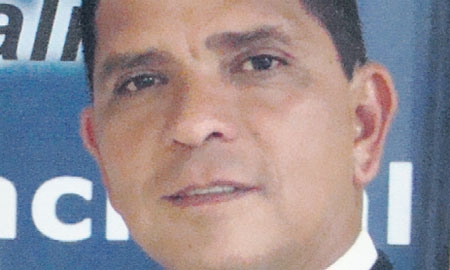As part of the national drive to dramatically improve the quality of transportation links across the country, last year the highways council, the
Consejo Nacional de Vialidad (
Conavi), awarded 22 road maintenance and paving contracts, representing a total investment of 8 billion colones (US$16 million). Of the 22 contracts, the developer Hernán Solís was awarded 17, with three going to Meco, one to Quebradores del Sur and another to the consortium Orosi–Siglo XXI.
“We must improve competitiveness, it is definitely what affects us most,” says Carlos Acosta Monge, executive director of Conavi. “Today the port and road infrastructure is what puts us at a disadvantage in terms of competitiveness with other countries in the area, and clearly we have to substantially improve this situation. We also need to give a little more support to the tourism sector and provide the necessary elements to attract tourists.”
Conavi is in the process of recruiting domestic and foreign companies from all over the world, including China, Brazil, Mexico, Germany, Spain, Portugal and the U.S., to create strategic corridors. Mr. Monge says, “We already have the funding to start on some of them. Our medium-term goal is to have a strategic network that is highly competitive and efficient to enable fast access to all parts of the country for visitors and investors. In a small country like ours it should not be so hard to have 10 good roads to link all the different regions.”
For many years, Costa Rica lagged in the development of its infrastructure, with the government more focused on other sectors such as education and health.
“According to our latest study, we currently have a backlog of US$15 billion of investment in road infrastructure. We need investment of US$20 billion dollars over the next 15 years to get to where we would like to be. These figures are extremely high for a country like ours,” says Mr. Monge.
The executive director believes, however, that the nation’s infrastructure should be improved without affecting Costa Rica’s focus on environmental protection. “As a country, we have succeeded in creating an ecological culture at a nationwide level, in which more than 25% of our territory is protected and dedicated to the preservation of natural life, which makes us an attractive destination for the world. We hope to be a role model in this area,” he says.
An effective and efficient road system, connecting all parts of the country, is vital for the nation’s development, not only economically, but also socially. “Every inhabited part of our country has road access – there is not a single village without it – and that is definitely, from a social development point of view, a very important fact,” says Mr. Monge. “As John F. Kennedy said many years ago: ‘It is not our wealth that built our roads, but it is our roads that built our wealth.’”

0 COMMENTS